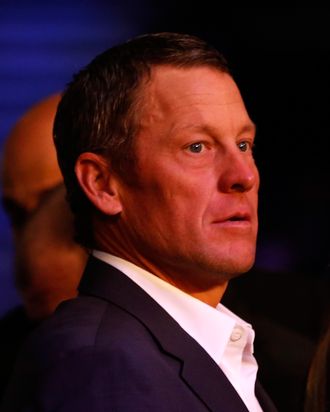
One of the many reasons my eyes glaze over when I hear the term “cancel culture” is that it remains so vaguely defined. Not only can we not agree what being canceled actually means — Does it mean the person loses their job? Their income? Some of their income? Just a little prestige? — we can’t agree on what a cancelable offense even is. Do you have to be arrested? Or accused? Or did you just date Taylor Swift at the wrong time? The whole enterprise feels designed solely to make sure we’re constantly screaming at each other.
Theoretically, the world of sports should be able to avoid all of this. A major part of sports’ appeal is that there are universally understood winners and losers and, most important, clear, defined rules. If you lose, you basically understand why. If you break a rule — whether it’s stepping out of bounds or violating a league policy — you are punished in a way that is out in the open and easily understood. Eagles fans can complain that they lost the Super Bowl because of a bad call. But no one debates that they lost.
Which is why it is particularly rich that Lance Armstrong — of all freaking people — now appears to be attempting to claim “canceled” status. Over the weekend, Armstrong, who is promoting a new web series called The Forward, an extension of his podcast of the same name, defended his first episode, in which he talks to Caitlyn Jenner about “trans in sports” issues (a “discussion” I would not watch if you tied me to a chair A Clockwork Orange style) by proclaiming that he was “fearless.” Moreover, he tweeted, in an age “where people’s greatest concern is being fired, shamed or cancelled,” he’s “someone all too familiar with this phenomenon” and thus “uniquely positioned to have these conversations.”
The construction of Armstrong’s tweet is its giveaway. He claims he is particularly “fearless,” because he’s someone who was “canceled” — with the inference, as always with these claims, that it happened to him unfairly. I hate to be all PolitiFact-y about this, but in case you’ve forgotten, it’s almost impossible to find a public figure beyond the 2024 GOP primary leader who has been a more relentless, proven liar on a global stage than Armstrong.
Way back in 2004, two European sportswriters published a book in French about the overwhelming case that Armstrong had been blood doping during all seven of his Tour de France championships. Armstrong responded first by ignoring the accusations, then attacking the men, and finally spending the next half-decade telling some of the most blatant lies of all time in the coldest, most stone-faced manner imaginable. He claimed he was “the most tested athlete in the world.” He once said, in the wake of his cancer diagnosis (which made him, briefly, one of the most famous and beloved athletes on the planet), “I’m a guy who [came] back from a death sentence, so why would I then enter into a sport and dope myself up and risk my life again? That’s crazy. I would never do that. No. No way.” Maybe worst of all, he lied to Oprah. I mean, the guy wrote a book while continuing a blood-doping regimen that he eventually admitted he’d been on for a full decade that includes the phrase, “How many times do I have to say it? Well, it can’t be any clearer than ‘I’ve never taken drugs.’”
Seriously, look at the Nike commercial Armstrong made, which we’d later discover was filmed amid his constant blood doping:
There is gall. And then there is that.
For Armstrong to claim that he was somehow unfairly “canceled” is the very definition of absurd: He knew the rules, broke the rules, and spent decades lying about breaking the rules before finally confessing when he had no choice but to do so. (To Oprah, naturally.)
And yet, here is Armstrong, somehow playing the cancel-culture victim. But in this, he is not alone. There’s Pete Rose, who not only explicitly broke baseball’s rule about gambling on his own team but, in fact, admitted to it and agreed to a lifetime ban for it, claiming his punishment was “unfair” and complaining about “the way we live today.” There is Trevor Bauer, suspended for two seasons (ultimately a season-and-a-third) for multiple violations of the league’s Joint Domestic Violence, Sexual Assault and Child Abuse Policy, writing tweets addressed to “Dear cancel culture.” There is even Brett Favre, claiming he has been “unjustly smeared in the media” for getting caught attempting one of sneakiest, ugliest things I’ve ever seen a public figure try to pull.
All of them broke actual, clearly stated rules — sometimes even laws. And all of them eventually passed the buck. One of the most important lessons that sports can teach us — whether we are professional athletes, Little League coaches, or just lousy Ping-Pong players — is how to lose: how we handle disappointment, how we improve, how we connect with others, how we evolve and grow. But in that, there is a basic understanding: The scoreboard tells the truth. It is perhaps inevitable, in this age of shameless grift and strategic aggrievement, that our most infamous sports liars would try to claim baseless persecution despite the scoreboard staring them, and all of us, dead in the face. It is still pretty remarkable, at the end of the day, to see Lance freaking Armstrong try it.






























